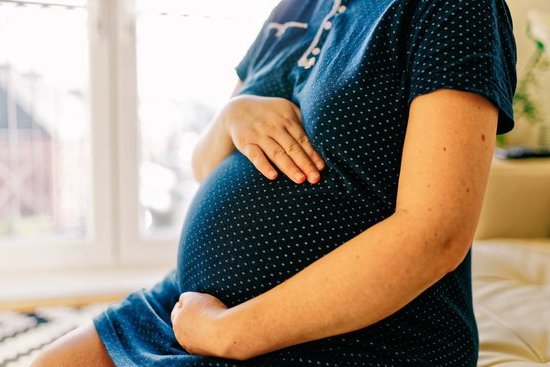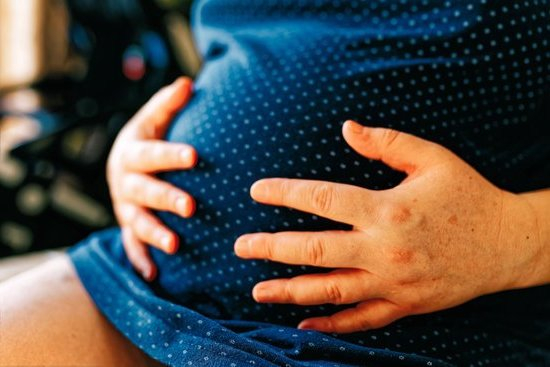Are you anxiously awaiting to find out if you’re pregnant? The question of how early can a pregnancy test detect pregnancy is one that many women have asked themselves at some point.
Whether you’re hoping for a positive result or dreading it, the curiosity around detecting pregnancy as early as possible is understandable. In this article, we will delve into the world of pregnancy tests, exploring their importance and the different factors that affect their ability to detect pregnancy in its earliest stages.
Pregnancy tests are an essential tool for anyone trying to conceive or those who may have had unprotected sex and want to rule out the possibility of pregnancy. Understanding how these tests work and how accurate they are can ease anxious minds while waiting for results.
Early detection is crucial for many individuals who are eager to know whether they are pregnant or not. Many women wonder about the reliability and accuracy of at-home tests and blood tests, as well as what factors may affect the detection time.
Early signs of pregnancy can also prompt someone to take a pregnancy test. From missed periods to breast tenderness, understanding these early symptoms can help individuals determine whether testing for pregnancy is necessary. In this article, we will explore how early a woman can detect her pregnancy using various types of tests and discuss the different variables that may impact the timing and accuracy of pregnancy test results.
Understanding Pregnancy Tests
When it comes to detecting pregnancy, there are several types of pregnancy tests available on the market. Each type works differently and has varying levels of accuracy and detection times. Understanding how these tests work can help individuals make informed decisions about when and how to take a pregnancy test.
Here are the different types of pregnancy tests available:
- At-Home Pregnancy Tests: These tests are readily available at most drugstores and can be taken in the privacy of your own home. They work by detecting the presence of human chorionic gonadotropin (hCG) in your urine, which is a hormone produced during pregnancy.
- Blood Tests: Conducted at a healthcare provider’s office, blood tests can detect hCG earlier than urine tests. There are two types of blood tests – qualitative hCG testing which determines if hCG is present, and quantitative hCG testing which measures the amount of hCG in your blood.
- Early Detection Tests: Some at-home pregnancy tests are advertised as “early detection” tests, claiming to detect lower levels of hCG and provide results earlier than traditional tests.
Understanding how these different types of pregnancy tests work is crucial in determining which one may be best suited for individual circumstances. Factors such as cost, convenience, accuracy, and early detection capability should all be considered when choosing a pregnancy test.
Familiarizing oneself with the different types of pregnancy tests available helps individuals make informed choices about their reproductive health. Knowing the differences between at-home urine tests, blood tests, and early detection options empowers individuals to take control of their fertility journey and confidently navigate the process of detecting pregnancy. This knowledge also helps manage expectations about when to expect accurate results from a specific type of test.
Early Signs of Pregnancy
When trying to conceive, many individuals keep a close eye on their bodies for any signs of pregnancy. Early signs and symptoms of pregnancy can often prompt someone to take a pregnancy test to confirm their suspicions. While these signs can vary from person to person, some common early indicators of pregnancy include missed periods, nausea or vomiting (morning sickness), breast tenderness, increased urination, fatigue, and food aversions or cravings.
Missed Periods
One of the most common early signs of pregnancy is a missed period. This occurs when fertilization has taken place and the embryo has implanted itself in the uterus, causing hormonal changes that stop the menstrual cycle.
Nausea or Vomiting
Nausea and vomiting, commonly referred to as morning sickness, are also early signs of pregnancy. These symptoms can be triggered by hormonal changes and typically occur within the first few weeks after conception.
Breast Tenderness
During early pregnancy, many women experience breast tenderness or swelling. This is caused by hormonal changes in the body and can be one of the first physical symptoms of pregnancy.
It’s important to note that these symptoms can also be attributed to other factors such as stress or illness. While they may prompt someone to take a pregnancy test, it’s essential to remember that a positive result is the only way to confirm a pregnancy definitively. This leads many people to ask how early can a pregnancy test detect pregnancy.
How Early Can a Pregnancy Test Detect Pregnancy
Pregnancy tests are essential tools for individuals who are trying to conceive or suspect that they may be pregnant. The question of “how early can a pregnancy test detect pregnancy” is a common one, and the answer depends on the type of test used. At-home pregnancy tests are widely available and convenient, but they may not be as sensitive as blood tests performed by healthcare professionals.
Here is an overview of the different detection times for various types of pregnancy tests:
- At-Home Pregnancy Tests: At-home pregnancy tests are designed to detect the presence of human chorionic gonadotropin (hCG), a hormone produced during pregnancy, in urine samples. These tests can typically detect hCG levels about 10 days after fertilization. Some at-home tests claim to provide early detection results up to 6 days before a missed period, but their accuracy may vary.
- Blood Tests: Blood tests for pregnancy, including quantitative hCG blood tests and qualitative hCG blood tests, are performed in healthcare settings. These tests can detect lower levels of hCG than at-home urine tests and can provide earlier and more accurate results. Quantitative blood tests can measure the exact amount of hCG in the blood, while qualitative blood tests simply confirm the presence of the hormone.
- Factors Affecting Detection Time: The timing of ovulation, implantation, and fertilization can affect when hCG levels rise enough to be detected by a pregnancy test. Additionally, the sensitivity of the test itself plays a role in how early it can detect pregnancy.
Ultimately, how early a pregnancy test can detect pregnancy depends on various factors such as the type of test used, individual hCG levels, and timing in relation to ovulation and implantation. It’s important for individuals to carefully follow the instructions provided with their chosen pregnancy test and consult with a healthcare professional if they have any questions or concerns about testing for pregnancy early.
Factors Affecting Detection Time
Pregnancy tests are essential tools for individuals trying to conceive or prevent an unplanned pregnancy. One common question people have is: how early can a pregnancy test detect pregnancy? The answer to this question is influenced by various factors, including the timing of ovulation and the sensitivity of the test being used.
The timing of ovulation plays a significant role in how early a pregnancy test can detect pregnancy. Ovulation occurs when a mature egg is released from the ovary, making it available for fertilization by sperm. After fertilization, it takes several days for the fertilized egg to travel to the uterus and implant into the uterine lining.
Once implanted, the body begins producing the hormone human chorionic gonadotropin (hCG), which is what pregnancy tests detect. The timing of ovulation and implantation can vary from person to person, affecting when hCG levels become detectable and influencing the accuracy of early pregnancy tests.
In addition to ovulation timing, the sensitivity of the pregnancy test being used also impacts how early it can detect a pregnancy. Some at-home pregnancy tests are designed to detect lower levels of hCG earlier in pregnancy, offering “early detection” results that may be positive before a missed period.
However, not all tests are equally sensitive, so it’s essential for individuals seeking early detection to choose a test with high sensitivity if testing before a missed period. Overall, understanding these factors can help individuals make informed choices about when and how to test for pregnancy based on their unique circumstances.
| Factor | Influence on Detection Time |
|---|---|
| Ovulation Timing | Affects when hCG levels become detectable and overall accuracy of early pregnancy tests |
| Sensitivity of Pregnancy Test | Determines how early a test can provide accurate results before a missed period |
Accuracy of Early Detection Tests
When it comes to early detection pregnancy tests, accuracy is key in obtaining reliable results. There are several different types of early detection pregnancy tests available, each with varying levels of accuracy. Understanding the differences between these tests and how to use them effectively can help individuals get the most reliable results when testing for pregnancy.
Types of Early Detection Pregnancy Tests
There are two main types of early detection pregnancy tests: at-home urine tests and blood tests conducted in a healthcare setting. At-home urine tests are convenient and widely accessible, but may not be as sensitive as blood tests. Blood tests, on the other hand, can detect lower levels of hCG (human chorionic gonadotropin) hormone earlier in pregnancy, making them more accurate for early detection.
Reliability and Sensitivity
The reliability and sensitivity of a pregnancy test play a crucial role in its accuracy for early detection. Some at-home urine tests claim to provide results up to six days before a missed period, while others may only be effective one or two days before. Higher sensitivity typically means higher accuracy for early detection, so selecting a test with greater sensitivity can improve the chances of getting accurate results.
Tips for Getting Reliable Results
To get the most reliable results from an early detection pregnancy test, it is important to carefully follow the instructions provided with the test. Testing too early or too late can affect accuracy, so it is essential to wait until the optimal time for testing based on the specific brand of test being used. Additionally, using first-morning urine – which contains higher concentrations of hCG – can improve the chances of obtaining an accurate result when testing for pregnancy early.
Understanding the differences between types of early detection pregnancy tests and their level of accuracy can help individuals make informed decisions when testing for pregnancy. By selecting a reliable test with appropriate sensitivity and following best practices for testing, individuals can increase their chances of obtaining accurate results when testing for pregnancy as early as possible.
Understanding False Positives and Negatives
When it comes to taking a pregnancy test, it’s important to consider the possibility of false positive and false negative results. A false positive occurs when a pregnancy test indicates that you are pregnant when you are actually not, while a false negative occurs when the test indicates that you are not pregnant when you actually are. Understanding these possibilities is crucial for accurately interpreting the results of a pregnancy test.
There are various factors that can contribute to false positive and false negative results. One common cause of a false positive is an early miscarriage or chemical pregnancy, where the fertilized egg implants in the uterus but does not develop further.
This can lead to a brief elevation in hormone levels, causing a positive result on a pregnancy test. On the other hand, a false negative can occur if the test is taken too early in the pregnancy before there is enough hCG (human chorionic gonadotropin) present in the body for detection.
It’s also important to consider external factors that may affect the accuracy of a pregnancy test. Certain medications, such as those containing hCG, can interfere with the results of a pregnancy test, potentially leading to false positives or negatives.
Additionally, improper use of the test, such as reading it outside of the recommended timeframe or using expired tests, can also impact its accuracy. Taking all these factors into consideration will help individuals make informed decisions about their next steps based on their pregnancy test results.
Tips for Early Testing
In conclusion, the ability to detect pregnancy early through a pregnancy test is an exciting and important aspect of family planning and reproductive health. Understanding the various types of pregnancy tests available, how they work, and their different detection times can provide valuable insight for individuals who are actively trying to conceive or who may suspect they are pregnant.
The knowledge of when and how to take a pregnancy test can help manage expectations and alleviate anxieties during the early stages of potential pregnancy.
When considering how early a pregnancy test can detect pregnancy, it is crucial to be informed about the factors that can affect its accuracy. Timing of ovulation, the sensitivity of the test, and individual hormone levels all play a role in determining when a test will yield reliable results.
Additionally, it is essential for individuals to understand the possibility of false positive or false negative results and how to interpret them. By being aware of these factors, individuals can make informed decisions about when to take a pregnancy test and what type of test to use.
Lastly, while the anticipation and emotional impact of early testing can be overwhelming, it is important for individuals to take care of their emotional well-being during this process. With considerations such as the best time of day to test and managing emotions throughout early testing, individuals can navigate this experience with more confidence and peace of mind. Ultimately, understanding the ins and outs of early pregnancy testing empowers individuals to make informed choices about their reproductive health journey.
Frequently Asked Questions
How Soon Will a Pregnancy Test Read Positive?
A pregnancy test can read positive as early as 7-10 days after conception, although some tests may be able to detect the pregnancy hormone hCG even earlier. It’s important to follow the instructions on the specific test being used.
How Long Does It Take for hCG to Show Up in Urine?
It generally takes about 2 weeks for hCG to show up in urine after conception. This hormone is produced by the placenta after a fertilized egg attaches to the uterine lining. However, some sensitive tests may be able to detect hCG sooner.
How Soon After Unprotected Can I Test for Pregnancy?
The timing of when to take a pregnancy test after unprotected sex depends on the length of your menstrual cycle and when you ovulate. Generally, it’s best to wait until you have missed your period or at least 1-2 weeks after unprotected sex for accurate results.

Welcome to my fertility blog. This is a space where I will be sharing my experiences as I navigate through the world of fertility treatments, as well as provide information and resources about fertility and pregnancy.





